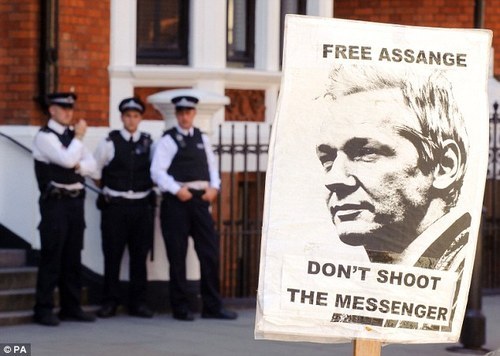
There are two hidden truths that no one seems to talk about when sports doping cases like Lance Armstrong’s fall from grace come to light.
Firstly, whether we admit it or not, almost every professional athlete is enhancing in some way or another. Secondly, the methods of testing and detecting performance enhancers cannot keep up with the rate of innovation — and new hormones, blood booster, absorption techniques and supplements are always being introduced faster than we can develop tests to find them.
So why are we still pursuing this futile battle? Why don’t we design a truly level playing field by allowing, regulating, and monitoring the use of any and all scientific enhancements? Tennis star Roger Federer wants to go the other way, and force athletes to have "blood passports" that keep annual records of their blood to be tested years down the line. We are now hearing newaccusations hurled against Olympians from this kind of back-record scrutiny. Boxer Julio Caesar Chavez Jr is even getting penalized for smoking marijuana, which isn't even a performance enhancer — although it certainly seems to have helped Michael Phelps stay cool in the pool.
Wouldn't it just make more sense to allow steroids, human growth hormones, blood boosters, supplements, and anything else we can find? Many people couldn't get past the fact that Lance Armstrong’s sociopathic apology read about as sincere as Casey Anthony’s sad face. But the real controversy is in pretending these isolated accusations are not indicative of a common practice throughout almost all sports.
I get the ideals of purity and level playing fields, but there are disparities and advantages even within the legal realms of athleticism. What would you call a nutritionist, personal trainer, physical therapist, or high-end sports gear and gym facilities? Keeping the enhancement practice under wraps only endangers the athletes further by not allowing it to be monitored by medical professionals. The more we normalize and standardize all advantages, the more performance comes down to the will of the individual athlete.

Original illustration by Nina Azzarello
Punishing athletes has done little to deter them, and all the cyclists who inherited Lance Armstrong’s Tour de France titles have been implicated in doping scandals of their own. It’s naive to think that only the ones we catch are doing it. If we legalized all forms of enhancement, we’d not only have an instantly even playing field, but it would also be one of peak performance and athletic ability — which is the essence of sports. Faster pitches, runs, and penalty shots. Harder tackles. Higher jumps. Increased agility, recovery and endurance. It makes the sports more watchable, profitable and enjoyable.
Why waste time drawing these arbitrary lines, when there’s already inane dispute within sports organizations as to what even constitutes an enhancer? Athletes are banned from human growth hormones — which can help with injury recovery — but can freely use muscle-building creatine. How are we defining what is kosher and what isn't?
For those worried about potential health risks, let’s remember we’re talking about people who put on armor to crash into each other, run for hours at a time, or wear knives on their feet to slide across ice. Danger is part of the game. Safely distributing, monitoring, and controlling performance enhancers on a case by case basis would only reduce the potential harm of indulging in them — as each athlete's regiment could be tailored and optimized.
The last remaining component is historical purity, and not wanting to let synthetically-enhanced athletes take a place alongside "pure" hall of fame record holders. But most of the greats hold claims from antiquated eras — and every generation improves rules, talent pools, equipment, and regulations. Could Babe Ruth really compete in today's Baseball? Would Muhammed Ali be able to beat Wladimir Klitschko?

This is not a debate over spitballs or corner-cutting cheats. Every athlete is already doing this to some degree. Let’s just get it out in the open and see where the human body can truly go.














